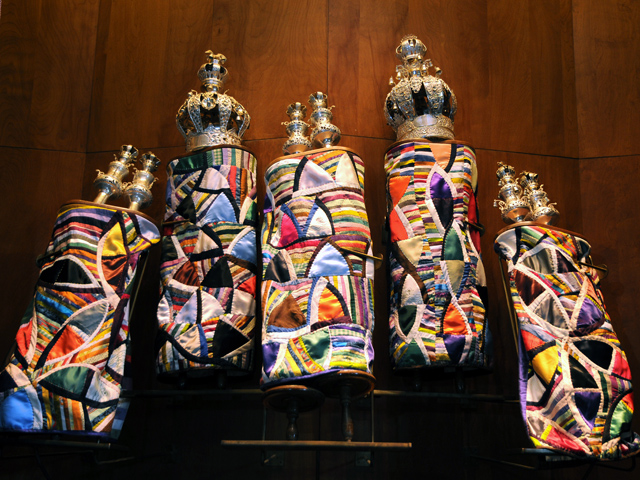There’s an extremist in me. I aim for the Maimonidean golden medium for my character and temperament, but underneath it is raving Baal Teshuva. I think that’s why the old joke matching Jewish holidays to psychological disorders spoke to me. Pesach is the outlet for those who get a spiritual satisfaction of being relentlessly thorough, and Pesach takes this urge to a tangible crescendo.
The great thing about Judaism, though, is that there is an inherent balance. For every law that seems extreme or regimented, there is a delicious freedom attached. My search, then, (my avodah), is to find the balance in Passover. In some senses, the holiday has a similar payoff to those who value a throwback to the simple life before preservatives and corn syrup. The freedom is found in the minimalism; imagine a table set with fresh unseasoned fish, fresh vegetables, and simplified home with the superfluous nonsense locked away, the floors gleaming from being freshly scrubbed with lemon juice. There is a breathtaking purity in the rigidity of the Pesach restrictions, that leaves so much mental room open to processing our ancestor’s freedom.
The seder may have a strict time limit in order to get to the afikomen by midnight, but this setup lends itself to focus and intensity. During the intermediate days of Pesach, family time and festive adventures are encouraged, all while dressed slightly nicer and still sticking to the simple foods.
Last Pesach, I hosted my first sedarim and cleaned my own apartment for the first time. It was right before I got engaged to my now-husband, and thoughts were on my mind of my future as a builder of a Jewish home. A Jewish home is the most sacred place in Jewish life, and this was my first apartment with my name on the lease. It was mine, and it became Pesachdik. I hosted sedarim with friends and coworkers, making the components of the seder plate with intent and concentration. That Pesach, I became a generational link. Now that I am married and am spending the holiday with my husband’s family, I look forward to being a link among a new extended family as well as a link through time.
That is my own personal balance I make for myself. As a self-proclaimed extremist blazing ahead on my spiritual path, the human connections I have to develop ground me. Pesach is the most intense time for spiritual growth and the most intense time for family bonding. I will always remember the jarred gefilte fish, Passover dishes, my dad’s theatrical reading of the Haggadah, the frog dance of my sisters during the 10 plagues, and my mother’s matzah brei from my traditional upbringing. Now, with a new husband and new group of in-laws, I can create new memories. The interpersonal and the intrapersonal are interwoven in Jewish life, and Pesach takes this to their most elevated heights.
That is why Pesach is my favorite Jewish holiday.


